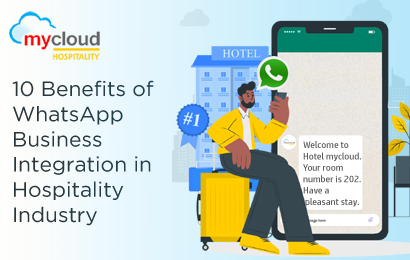2020 has been devastating for the travel industry during the COVID-19 outbreak. The whole sector Came to a grinding halt, and brands couldn’t do anything to prevent their losses. In fact, many hotels, online travel booking agencies, and other travel companies have shut down permanently.
But a year later, things are slowly starting to change. The industry has begun adopting new tech to prepare and provide the most safe possible experience to travellers. But at the same time, recent research has shown how traveler behaviour has changed.
This behaviour can help hoteliers understand how they must modify their services and guest approach. Not only this, but they will also understand which technologies they need to deliver the best services.
1. More and more people are working from their homes
The coronavirus pandemic has changed many things. Remote work was not uncommon before the outbreak, but most larger companies preferred having their employees in the office. Of course, they were able to work remotely occasionally.
At the same time, people who had disabilities were allowed to work remotely full time. But COVID-19 has made remote work a standard for all companies that could do business this way. But numbers show that this trend isn’t going to dial down as the coronavirus pandemic starts to slow down.
Companies around the globe have adopted remote work policies with more flexibility. In the past, this was seen as a “perk”, but this practice is not a standard. Some of the largest companies like Amazon, Facebook, and Twitter have announced that they will continue with these practices after the pandemic has passed.
Forecasts show that the number of full-time remote workers is going to double by the end of 2021. The workplace as we know it has changed for good, and many wonder what the future will look like. More importantly, this trend will have a significant effect on occupancy and the services they offered. They will need to rethink their complete offer and how to increase the falling ARR because of low occupancy with changes in travel and work trends.
2. Almost two-thirds of travellers plan on staying in hotels
The annual US Consumer Travel Report published in July 2021 has shown some exciting numbers and consumer behaviour. Even though the whole hotel industry took a big hit in 2020, things are going much better today.
In 2020 hotels were closed as most countries banned travel and implemented safety measures that prevented people from coming to hotels. But 3 out of 5 people in the US say that they will travel in 2021 and around 60% plan to stay in hotels.
One of the reasons for this is that they no longer feel that hotels are dangerous. Consumers know what coronavirus is, what its mechanisms are, and how they can prevent being exposed to it. Lots of hotels have put in the effort to protect their guests and ensure their safety.
In 2020 the pandemic wasn’t the only issue. People were afraid and were reluctant to go out in public even when they were allowed to do so. But now, consumers have the will to book a hotel, but only if the industry adjusts and ensures their safety.
3. Flexibility is more important to travellers than ever
In the past, travellers focused on finding the cheapest accommodation, busy destinations, or exciting cruises. But the pandemic has changed this as the most important priorities for travellers today are safety and flexibility.
People don’t want to get infected with the virus or have any other issues, for that matter. But at the same time, we are still not living in a stable travel environment. This means that things can change quickly in regulations, protocols, and even travel bans.
This is why travellers need flexibility regarding insurance against cancelation fees, fees for changing travel dates, travel time, and all the costs surrounding baggage issues. On the other hand, travellers also want flexibility with rescheduling, loyalty programs, accommodation, etc. Earlier, hotels had the liberty to charge hefty cancellation and no-show fees. Now, they would need to focus on guest retention and how to ensure guests are accommodated due to changes in the travel market.
Even though people are ready to travel, they are aware that the pandemic isn’t over. This is why they’ve adopted a flexible mindset and expect the travel industry to do the same and this includes hotels as well.
How hotels need to adjust to these new trends
With the whole hotel industry suffering greatly from the pandemic, hoteliers, CEOs, and other higher-ups need to change their business approach. First of all, hotels should create a hybrid service that is focused both on leisure as well as business.
Hybrid hospitality
The first thing hotels need to do is provide a lot of adaptable space. Private rooms or suites are no longer enough. Hoteliers need to add event rooms, shared workspaces, meeting rooms, and so on. In other words, people need office space for socializing, co-working, meetings, and making private calls.
In other words, a lot of people might be visiting your hotel while they are working. You need to provide them with private rooms and work areas where they can finish up their daily tasks. Focus on great internet connectivity, virtual meeting rooms, spaces for video calls with professional environments, and services that accommodate these new needs. With F&B timings, the needs will differ, too, and packages need to be created for these WFH and WFA classes of travellers.
Maximum connectivity and safety
Since many travellers plan on staying at hotels, the whole industry needs to provide them with all the technology and connectivity they need to do their jobs. But at the same time, hoteliers should also include reliable systems that guarantee health and safety.
Self-check-in hotel software is becoming a standard as it lets people check-in with ease without having to talk to anyone or spend time with groups of people. Some of the best contactless check-in software solutions like Mycloud PMS allow guests to:
– Book online in a contactless manner
– Contactless check-in
– Contactless room service using QR
– Digital keys
– Contactless payments and checkout
Offer flexibility throughout
Hotels without any long-term obligations, guarantees that cost a lot of money, or leases are the preferred option for travellers and businesses. People want day-to-day options in terms of accommodation. On top of that, they also want different options in terms of payments, booking, amenities, etc.
Conclusion
To sum things up, hotels need to offer remote work amenities, give the necessary tech infrastructure, and offer flexibility to travellers in 2021. This puts innovative tech solutions at the center. If you’re not sure about these new digital solutions, try them out for free and see the benefits they bring to your business.







